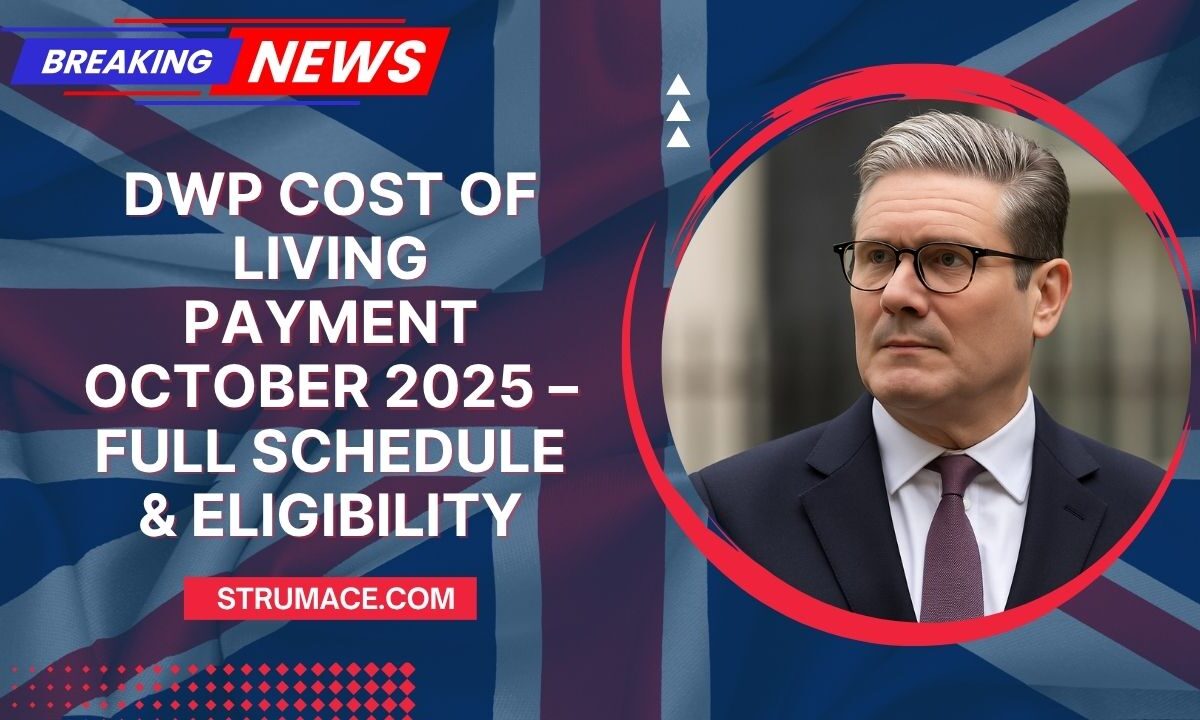As the cost of living remains high across the UK in 2025, the Department for Work and Pensions (DWP) is issuing the final phase of its Cost of Living Payment initiative.
The October 2025 payment, which could reach up to £500, is expected to provide critical support for households struggling with soaring energy bills, food prices, and winter expenses.
This article outlines the eligibility, payment dates, amounts, and how the October payment fits into the broader financial support program.
What Is the October 2025 Cost of Living Payment?
The DWP Cost of Living Payment in October 2025 is the third and largest installment of the government’s 2025 three-part support plan.
It is designed to help low-income individuals and families manage increasing costs in the final quarter of the year.
This payment is automatic—if you’re receiving a qualifying benefit during the designated assessment window, you will receive the payment directly in your bank account. No application is needed.
DWP Cost of Living Payment 2025 Breakdown
| Phase | Date Range | Payment Amount | Purpose |
|---|---|---|---|
| Phase 1 | March – May 2025 | £301 | Support after winter energy bills |
| Phase 2 | July – August 2025 | Up to £200 | Help with childcare, food, travel |
| Phase 3 | October – December 2025 | Up to £500 | Heating costs, holiday spending, groceries |
The October phase is particularly significant as it coincides with the highest energy usage and holiday season costs.
Who Is Eligible for the October 2025 Payment?
To receive the October payment, you must be on qualifying means-tested benefits during the official eligibility window, expected to fall between late August and early September 2025.
Eligible Benefits:
- Universal Credit
- Income-based Jobseeker’s Allowance (JSA)
- Income-related Employment and Support Allowance (ESA)
- Income Support
- Pension Credit
- Working Tax Credit
- Child Tax Credit
Disability Benefits Included:
- Personal Independence Payment (PIP)
- Disability Living Allowance (DLA)
- Attendance Allowance
If you are eligible, the payment will be made automatically, using the same method as your usual benefit.
Total Payment Support in 2025
If you qualify for all three phases, you could receive up to £1,000 in total payments from DWP this year:
- £301 in Spring
- Up to £200 in Summer
- Up to £500 in Autumn
These non-taxable payments do not affect your eligibility for other benefits and are processed without applications.
Why the October Payment Is Critical
This final payment is timed strategically. Many families face increased utility bills, seasonal food price hikes, and holiday-related expenses from October through December.
The up to £500 payment offers a much-needed cushion, particularly for:
- Households with children
- Pensioners on fixed incomes
- Disabled individuals facing extra living costs
These payments can help prevent debt, missed rent, or cutbacks on heating and essentials.
How Payments Are Made
You do not need to apply. Payments will be labeled in your account with references like “DWP COL” or “HMRC COL”, depending on the benefit you receive. The process is automatic, but it is crucial that:
- Your benefit records are accurate
- You were eligible during the qualifying period
The DWP Cost of Living Payment October 2025 is a vital support tool for millions of UK residents.
With up to £500 in direct financial aid, this final phase of the government’s cost of living initiative can offer real relief during the most financially demanding time of the year.
Check your benefit status, keep your details updated, and be prepared for the payment to arrive between October and December 2025.
FAQs
How much will I get in October 2025?
Eligible individuals may receive up to £500 in the October payment, depending on their benefit status during the qualifying period.
Do I need to apply to receive this payment?
No. The payment is automatic for those receiving qualifying benefits. No application or paperwork is needed.
Can I receive all three Cost of Living Payments in 2025?
Yes, if you were eligible during each phase’s assessment period, you could receive up to £1,000 total in support for the year.
